
Doing the Homework
This guide provides insight on what it really means to do the homework and outlines action steps funders can take to meaningfully incorporate this practice in their organizational structure, culture, and relationships.
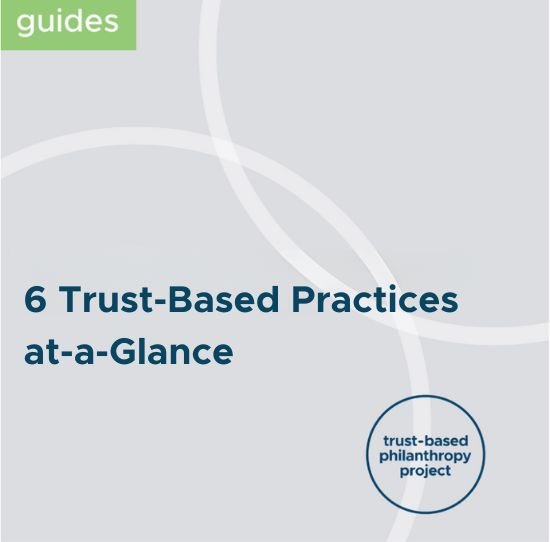
6 Trust-Based Practices at-a-Glance
This guide provides a 2-page overview of the trust-based philanthropy approach, including the six practices of trust-based grantmaking.
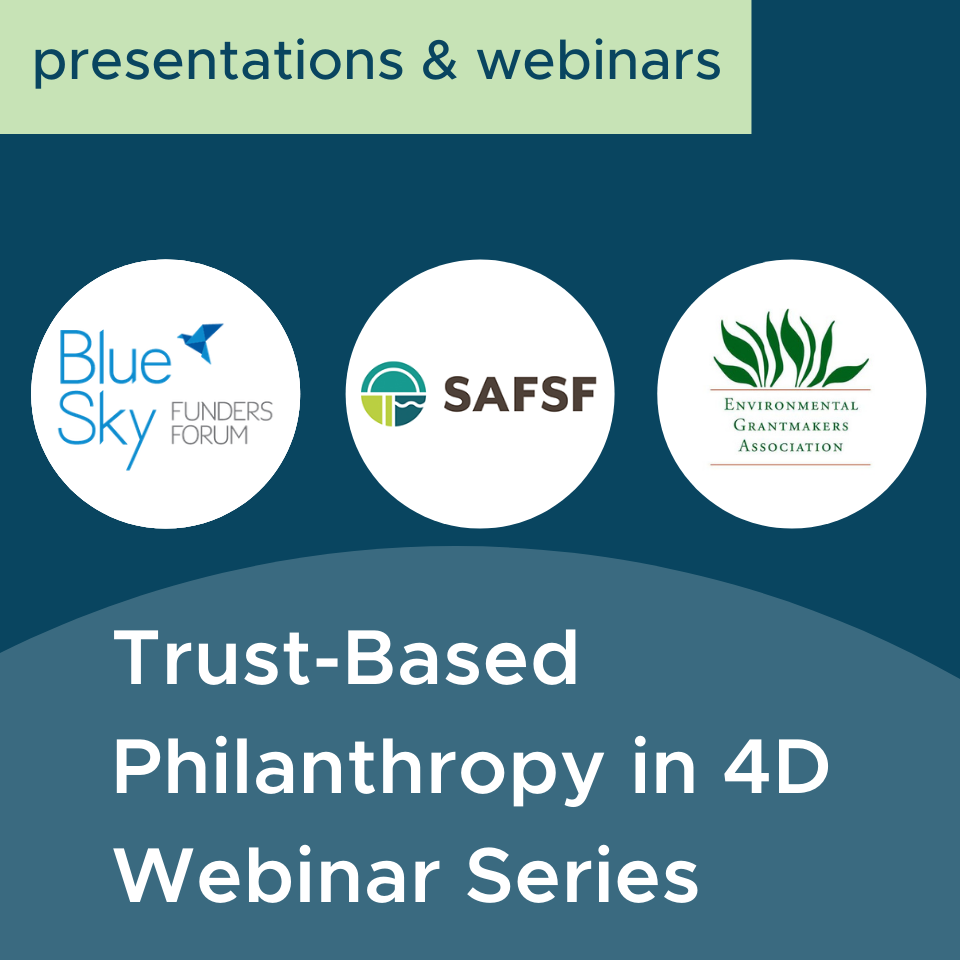
Series: Trust-Based Philanthropy in 4D
This four-part series invites funders to consider a multi-dimensional approach to the trust-based journey, which trust-based values shape grantmaking practices, culture, Structure, and leadership.
Grantmaking with a Racial Justice Lens
The Philanthropic Initiative for Racial Equity created this guide to help foundation leaders understand what it means to move from racial equity to racial justice funding strategies.
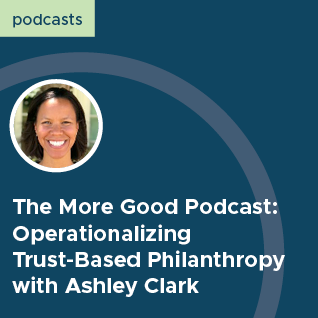
Operationalizing Trust-Based Philanthropy
Ashley Clark, Director of Knowledge and Grants Management at the Libra Foundation, joins the More Good Podcast to share her experience centering trust in operational decisions, from who is funded to how grants are tracked and managed internally.
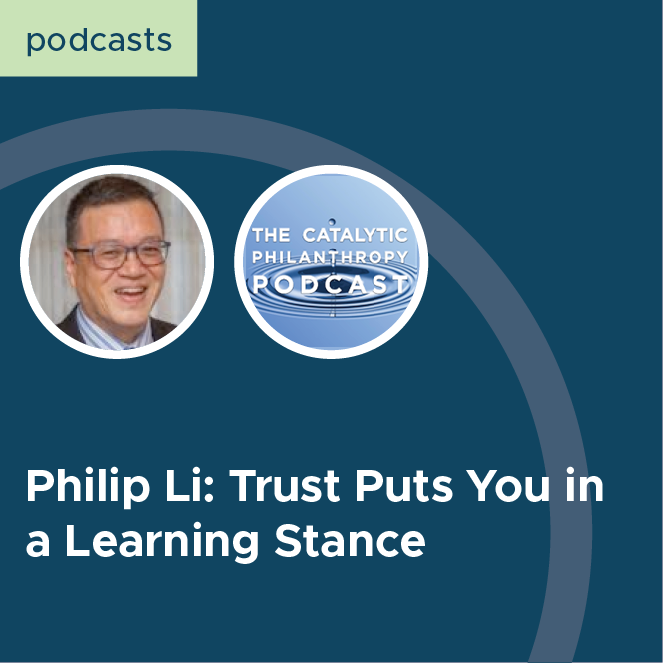
Trust Puts You in a Learning Stance
On this episode of The Catalytic Philanthropy podcast, Philip Li, President & CEO of the Robert Sterling Clark Foundation, offers first steps to building strong, mutually beneficial relationships with grantees.
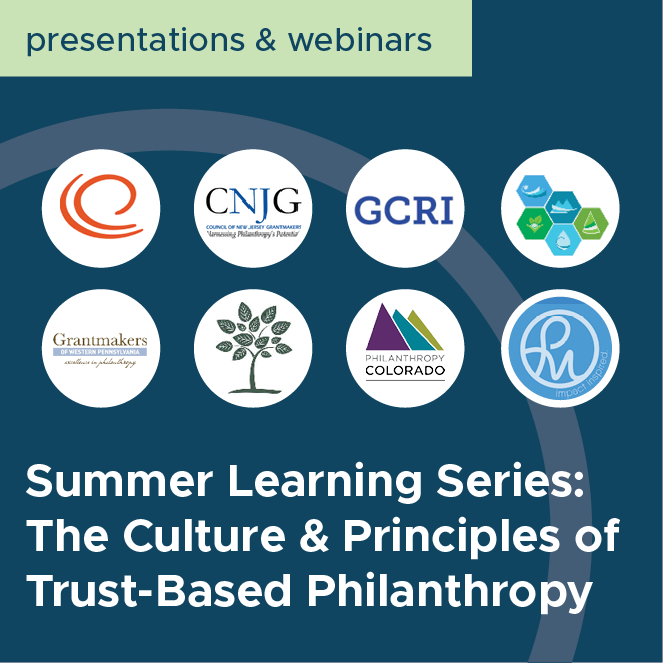
Trust-Based Philanthropy Summer Learning Webinar Series
This three-part series examines the process of building trust and mutual accountability with grantee partners and invites funders to reflect on the internal work necessary to center equity and power-awareness.
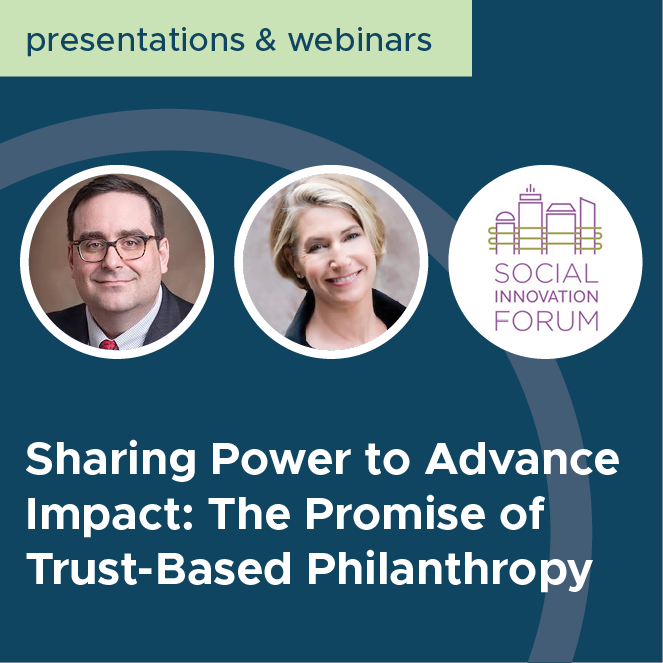
Sharing Power to Advance Impact: The Promise of Trust-Based Philanthropy
Two foundation leaders who have embedded trust-based values and practices into their work share what they're doing, what they are learning, and what is possible when funders yield control in service of healthier nonprofits and communities.
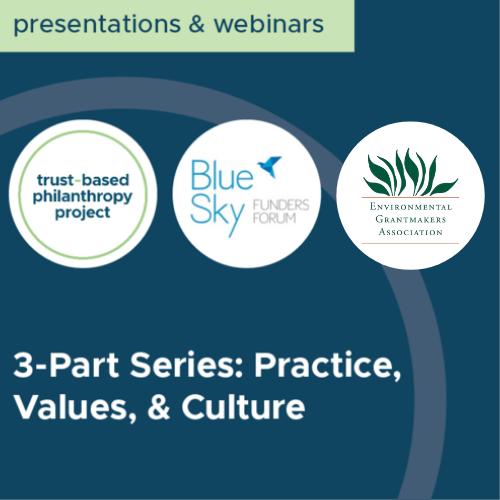
3-Part Series: Practice, Values, & Culture
This webinar series explores the practices, values, and culture of what it means to be a trust-based funder.
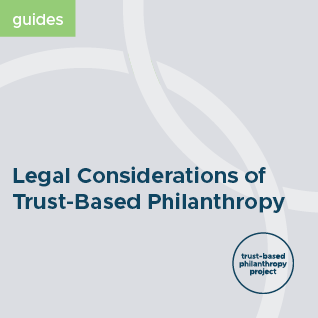
Legal Considerations for Trust-Based Philanthropy
This primer answers frequently-asked legal questions about trust-based philanthropy.
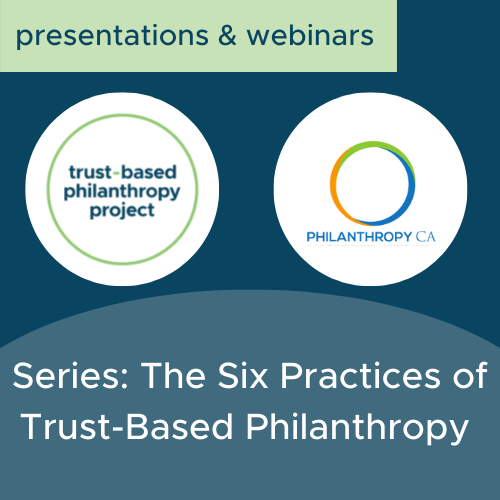
Series: The Six Practices of Trust-Based Philanthropy
Over the course of seven sessions, this series unpacks the six practices of trust-based philanthropy, as well as how to make the case for the structural and cultural changes necessary to support them.

Durfee Foundation's Grant Application for New Organizations
This grant application from Durfee Foundation balances “doing the homework” with the particular considerations for funding new organizations.

Legal Considerations for Trust-Based Philanthropy
Featuring Jean Tom from Davis Wright Tremaine LLP, this webinar addresses questions around the legal implications of trust-based philanthropy and alleviates concerns about perceived legal risks.
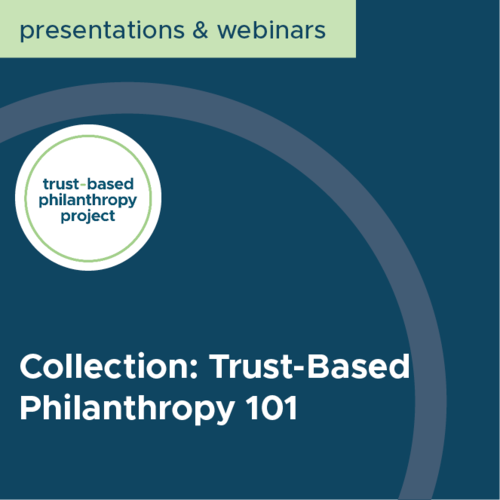
Webinar Collection: Trust-Based Philanthropy 101
TBP 101 sessions offer a primer on trust-based philanthropy and an overview of its six principles, through the lens of a particular trust-based foundation’s journey.
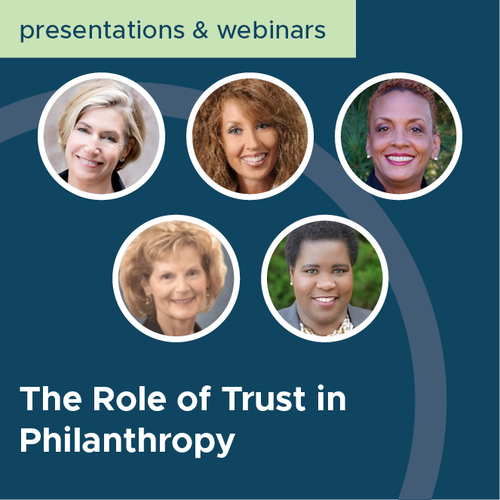
The Role of Trust in Philanthropy
This keynote by Carrie Avery, President of the Durfee Foundation, is immediately followed by a panel discussion featuring three Indiana-based funders as they share more about how they’re working on prioritizing trust and relationships in their work.
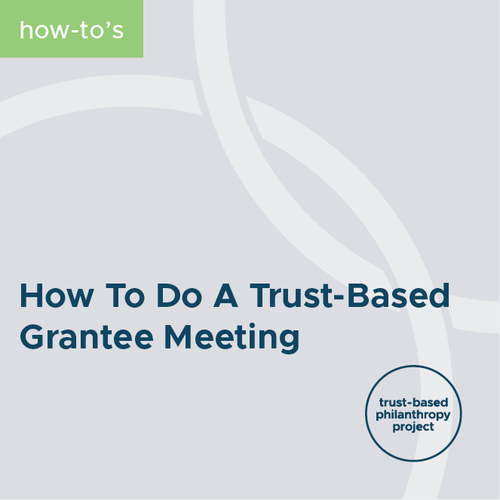
How To Do A Trust-Based Grantee Meeting
This funder-specific tool offers a checklist of trust-based considerations before, during, and after grantee check-in meetings.
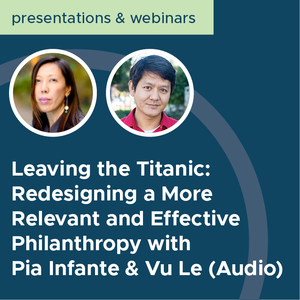
Leaving the Titanic: Redesigning a More Relevant, Effective Philanthropy
In this breakfast plenary from the 2020 Catalist Conference, nonprofit leader and writer Vu Le and Trust-Based Philanthropy Project steering committee member Pia Infante reimagine philanthropy’s role in this sociopolitical climate.
Relationships Matter: Program Officers, Grantees, and the Keys to Success
Research from the Center for Effective Philanthropy (CEP) sheds light on what constitutes a strong funder–grantee relationship, what nonprofits say it takes for funders to foster such relationships, and the crucial role that program officers play in the equation.
